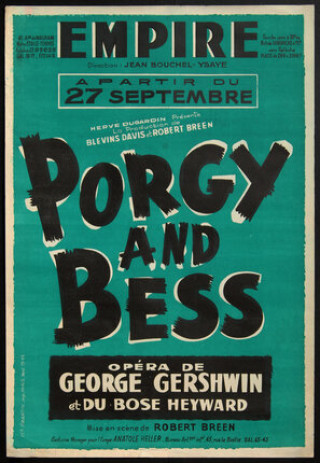John Mauceri devotes a good part of his busy career to restoring lost music. The American conductor and scholar, who recently served as the music adviser for the Academy Award-nominated Tár, uncovered and put back vital missing pieces of Leonard Bernstein’s operetta Candide. He reconstructed the overture to Ben-Hur, after MGM had inexplicably thrown away the sheet music of that classic film score, for a performance at the Hollywood Bowl with the ailing composer Miklós Rózsa onstage in a wheelchair. Mauceri jokingly calls himself a cross between Indiana Jones and Dr. Frankenstein, and depending on your point of view, he is either an excavator of rare artifacts or a man stitching up cadavers. Over the past two years, in collaboration with another conductor, Michael Gildin, he has been restoring a work ardently coveted by music aficionados but given up for dead: a lost opera written by two eminences of the Great American Songbook — composer Harold Arlen (“Over the Rainbow,” “Stormy Weather”) and lyricist Johnny Mercer (“Skylark,” “Moon River”).
The work is called Blues Opera. It took shape between 1954 and 1958 but was never performed as conceived by its creators. An adulterated version called Free and Easy, with a jazz band instead of an orchestra, opened under the music direction of Quincy Jones, then 26, in Amsterdam in late 1959 and closed in Paris in early 1960. Mauceri recalls once running into Jones at the former Staples Center and, familiar with the opera’s history, inquiring about the existence of a score. “Quincy told me the whole band played from memory, and that I would never find a score, because there was none,” Mauceri says.
Jones, who declined to be interviewed for this article, was mistaken. After considerable detective work by Gildin and Mauceri, assistance from librarians at special collections in U.S. cities all over the map and a good deal of luck, there is a complete piano vocal score of Blues Opera in Mauceri’s New York apartment. The opera lacks only a final step — orchestration — to be made ready for a debut that could take place as early as next year. G. Schirmer, the New York-based music publisher, has concluded a deal to publish the piano and orchestral scores. The few people who have been granted access to the reconstructed opera — including, on a recent morning, the author of this article — can attest that it is a superlative work, one that will fundamentally change the music world’s perception of Harold Arlen, today mostly remembered as the Hollywood tunesmith who wrote the songs for The Wizard of Oz. Mauceri is thrilled. “Blues Opera is the most important restoration I’ve done,” he says. “What a masterpiece we have unearthed and made viable.” As word gets out, certain music lovers may greet the restoration of Arlen and Mercer’s opera as the equivalent of an art scholar finding a lost Caravaggio. That excitement should have opera companies clamoring for the premiere.
